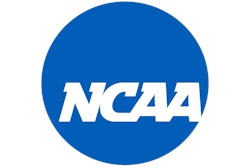
Michigan representative and former college and professional athlete Joe Tate has introduced a bill to protect student-athletes' right to profit off of their name, image and likeness.
According to WLNS, House Bill 4643 states that collegiate institutions and athletic organizations cannot prevent student athletes from receiving financial compensation for the use of their NIL.
The bill also prohibits penalties, restrictions, or retaliatory actions against athletes, agents, institutions, or third parties engaging in legal NIL activities.
“Student athletes deserve the same basic rights as any other student — the ability to profit from their own talent, image and effort,” Tate said in a news release sent to 6 News.
Tate himself played left guard for Michigan State from 2000 to 2003 and spent two years in the NFL as a member of the Jacksonville Jaguars, Atlanta Falcons, and St. Louis Rams.
“I’ve lived the student-athlete experience. I know the dedication, sacrifices and challenges that come with balancing academics, athletics and personal growth. My legislation guarantees student athletes can pursue those opportunities without fear of punishment from their schools or sports organizations,” Tate said.
Tate said that the recent House settlement is just one step on a long road to stabilizing collegiate sports and ensuring that student-athletes are protected.
“At its core, the bill recognizes NIL as a matter of economic fairness," Tate said. "While universities and athletic programs generate millions in revenue, the athletes themselves often receive nothing beyond scholarships. This legislation works to ensure that those contributing to that success are not shut out of the economic opportunities they help create."





































